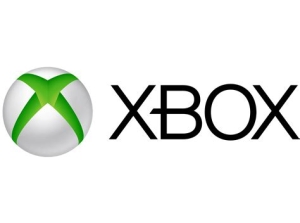From The Blog
-
ConnectWise Slash and Grab Flaw Once Again Shows the Value of Input Validation We talk to Huntress About its Impact
Written by Sean KalinichAlthough the news of the infamous ConnectWise flaw which allowed for the creation of admin accounts is a bit cold, it still is one that…Written on Tuesday, 19 March 2024 12:44 in Security Talk Read 715 times Read more...
-
Social Manipulation as a Service – When the Bots on Twitter get their Check marks
Written by Sean KalinichWhen I started DecryptedTech it was to counter all the crap marketing I saw from component makers. I wanted to prove people with a clean…Written on Monday, 04 March 2024 16:17 in Editorials Read 1590 times Read more...
-
To Release or not to Release a PoC or OST That is the Question
Written by Sean KalinichThere is (and always has been) a debate about the ethics and impact of the release of Proof-of-Concept Exploit for an identified vulnerability and Open-Source…Written on Monday, 26 February 2024 13:05 in Security Talk Read 1125 times Read more...
-
There was an Important Lesson Learned in the LockBit Takedown and it was Not About Threat Groups
Written by Sean KalinichIn what could be called a fantastic move, global law enforcement agencies attacked and took down LockBit’s infrastructure. The day of the event was filled…Written on Thursday, 22 February 2024 12:20 in Security Talk Read 1100 times Read more...
-
NetSPI’s Offensive Security Offering Leverages Subject Matter Experts to Enhance Pen Testing
Written by Sean KalinichBlack Hat 2023 Las Vegas. The term offensive security has always been an interesting one for me. On the surface is brings to mind reaching…Written on Tuesday, 12 September 2023 17:05 in Security Talk Read 2144 times Read more...
-
Black Kite Looks to Offer a Better View of Risk in a Rapidly Changing Threat Landscape
Written by Sean KalinichBlack Hat 2023 – Las Vegas. Risk is an interesting subject and has many different meanings to many different people. For the most part Risk…Written on Tuesday, 12 September 2023 14:56 in Security Talk Read 1869 times Read more...
-
Microsoft Finally Reveals how they Believe a Consumer Signing Key was Stollen
Written by Sean KalinichIn May of 2023 a few sensitive accounts reported to Microsoft that their environments appeared to be compromised. Due to the nature of these accounts,…Written on Thursday, 07 September 2023 14:40 in Security Talk Read 2140 times Read more...
-
Mandiant Releases a Detailed Look at the Campaign Targeting Barracuda Email Security Gateways, I Take a Look at What this all Might Mean
Written by Sean KalinichThe recent attack that leveraged a 0-Day vulnerability to compromise a number of Barracuda Email Security Gateway appliances (physical and virtual, but not cloud) was…Written on Wednesday, 30 August 2023 16:09 in Security Talk Read 2110 times Read more...
-
Threat Groups Return to Targeting Developers in Recent Software Supply Chain Attacks
Written by Sean KalinichThere is a topic of conversation that really needs to be talked about in the open. It is the danger of developer systems (personal and…Written on Wednesday, 30 August 2023 13:29 in Security Talk Read 1903 times Read more...
Recent Comments
- Sean, this is a fantastic review of a beautiful game. I do agree with you… Written by Jacob 2023-05-19 14:17:50 Jedi Survivor – The Quick, Dirty, and Limited Spoilers Review
- Great post. Very interesting read but is the reality we are currently facing. Written by JP 2023-05-03 02:33:53 The Dangers of AI; I Think I Have Seen this Movie Before
- I was wondering if you have tested the microphone audio frequency for the Asus HS-1000W? Written by Maciej 2020-12-18 14:09:33 Asus HS-1000W wireless headset impresses us in the lab
- Thanks for review. I appreciate hearing from a real pro as opposed to the blogger… Written by Keith 2019-06-18 04:22:36 The Red Hydrogen One, Possibly One of the Most “misunderstood” Phones Out
- Have yet to see the real impact but in the consumer segment, ryzen series are… Written by sushant 2018-12-23 10:12:12 AMD’s 11-year journey to relevance gets an epic finish.
Most Read
- Microsoft Fail - Start Button Back in Windows 8.1 But No Start Menu Written on Thursday, 30 May 2013 15:33 in News Be the first to comment! Read 116533 times Read more...
- We take a look at the NETGEAR ProSafe WNDAP360 Dual-Band Wireless Access Point Written on Saturday, 07 April 2012 00:17 in Pro Storage and Networking Be the first to comment! Read 87518 times Read more...
- Synology DS1512+ Five-Bay NAS Performance Review Written on Tuesday, 12 June 2012 20:31 in Pro Storage and Networking Be the first to comment! Read 82058 times Read more...
- Gigabyte G1.Sniper M3 Design And Feature Review Written on Sunday, 19 August 2012 22:35 in Enthusiast Motherboards Be the first to comment! Read 80344 times Read more...
- The Asus P8Z77-M Pro Brings Exceptional Performance and Value to the Lab Written on Monday, 23 April 2012 13:02 in Consumer Motherboards Be the first to comment! Read 71008 times Read more...
Displaying items by tag: Microsoft
Microsoft Finally Reveals how they Believe a Consumer Signing Key was Stollen
In May of 2023 a few sensitive accounts reported to Microsoft that their environments appeared to be compromised. Due to the nature of these accounts, Microsoft dove in and discovered that an expired Consumer Microsoft Account Singing Key had been used to gain access to these tenants. It was more than a bit embarrassing as the list included environments that appear to have been related to their Government Cloud Computing tenants, fortunately on the low side (non-classified). Microsoft quickly responded and says they expelled the threat actor while removing the possibility of using that key again (they identified the thumbprint of the key used).
Recently Stolen Microsoft Account Signing Keys can be used to Abuse other Microsoft Identification Related Services
After a recent attack on Federal Civilian Execute Branch (FCEB) Agencies by an APT (Advanced Persistent Threat) group currently suspected of being a nation-state group from China, (whew that was a long start), It has come to the attention of some cloud researchers that these signing keys are not just useful for attacking Exchange Online. According to cloud security company Wiz these MSA Keys can be used to forge tokens for anything that relies on Microsoft Azure AD (Entra ID) Identity services.
Mystery still Surrounds theft of MSA signing Key in recent FCEB Breaches
Last week Microsoft, the FBI, and CISA made disclosed several attacks on Federal Civilian Executive Branch agencies and other targets of a campaign that appeared to be driven by a new threat group out of China. The attack we detected and tracked down using internal logging available to the GCC low-side tenants and with the help of Microsoft. Fortunately, GCC (Government Cloud Computing) Low Side is not supposed to contain or pass any classified information. It is intended to be used by government agencies and contractors that do not need or have authorization to access anything more than routine sensitive information. This does not reduce the seriousness of the attack and does beg the question on how well the tenants were secured by the cybersecurity teams involved, but at least nothing National Security related was compromised.
BlackLotus UEFI Bootkit Source Coe Leaked Allowing Researchers and Threat Groups Alike to Review the Code
The UEFI (Unified Extensible Framework Interface) was the replacement for the old BIOS (Basic Input Output System). It was intended as an improvement to the underlying systems on a motherboard (also called mainboard) the motherboard controls communication between all components connected to it from CPUs, to memory, to GPUs, disk or solid-state drives, network cards… you get the picture. The old BIOS was limited and also susceptible to compromise in a number of rather simple ways. By moving to UEFI systems could become more complex without issues potential hardware conflicts, the UEFI structure was also much faster than the BIOS system meaning that as overall computing increased in speed the underlying controls for different components was up to the task.
US Federal Civilian Executive Branch Agency’s Email Compromised by new Chinese APT Group
It seems that an unnamed FCEB agency had their Outlook Web Access (Exchange Online) environment compromised by a new threat group that is current being attributed to China. The attack and the group were disclosed by CISA and the FBI. With the detection of the FCEB email compromise, Microsoft also identified a much larger espionage campaign involving the newly identified group which includes some 20+ organizations. The timing of the attack is concerning due to it coinciding with a recent NATO meeting.
Microsoft Teams Flaw Leveraged by New Red Team Tool to Push Malware
There is nothing like an unresolved security flaw in a major product. Especially when the flaw is one that the developer knows about but does not consider important enough to fix in a timely manner. If the flaw is in a commonly used product, it is even better. In this case we are talking about a flaw we covered back on the 23rd of June. This is a bug that can allow an attacker to mimic an internal sender to get around file handling from external senders. In our opinion, it is significant, but Microsoft has no plans to remediate it any time soon. I guess they have other things on their plate like Privacy Investigations in the EU (Over Teams and Office) and the pending Activision/Blizzard deal in court in the US.
Microsoft’s Cloud Feature Runs at a Loss According to Testimony to FTC
So, it seems that under direct questioning Microsoft has been forced to admit that cloud gaming is not as big of a deal as they have been saying it is. We have long held that their generous 10-year cloud licensing deal for cloud gaming was not an honest attempt at competition. After all cloud gaming represents a little less than 1% of the total gaming market. Now Sarah Bond has admitted that it is not a popular option and that it is most commonly used as a feature for Microsoft consoles.
Why the Microsoft Activision Blizzard Deal is such a Big Deal
Unless you have been living under a rock or just do not care about gaming at all, you have probably heard a lot about the Microsoft Activision merger/acquisition. The deal, one of the largest in history, is a monster. Microsoft wants to buy, lock, stock and barrel, the Activision Blizzard game development company for a whopping $68.7 Billion (with a “b”). The deal would give Microsoft complete control over everything Activision/Blizzard. Now for some this might not be a bad thing if you look at it from just a game perspective or if you are just a PC gamer. The problem comes when you get into how games are really developed and how game developers work with component and console makers to ensure their games work properly.
FTC Changes the Focus from Cloud to Xbox Vs PlayStation in Microsoft Activision Blizzard Deal (as it should be)
In our coverage of the Microsoft Activision/Blizzard deal we have often wondered why so many of the groups that approved the deal, and one that opposed it, focused only on cloud gaming. We saw the UK say that the deal was bad for cloud gaming while others stated that a 10-year licensing deal for cloud gaming services that Microsoft agreed to made everything all better. As we looked over the approvals and oppositions this odd focus on what represents less than 1% of the gaming market seemed so out of place that started to feel that the opposition was just a token resistance and the deal (which is a bad thing) was just going to get rubber stamped.
Flaw in MS Azure AD OAuth Could Allow for Complete Account Take Over
Microsoft’s Azure AD, the cloud-based flavor of the on-premises service is an interesting construct. On the surface you think that it has some decent protections enabled by default. The sad truth of the matter is that this is not the case and many options for security are very lacking until you hit much higher security levels. If you add to this equation the likelihood of vulnerabilities and other flaws that can allow an attacker to bypass the security options that are already there it is a bit of a mess. This wonderful thought is what brings us to today’s flaw. According to security researchers, there is a flaw in how Microsoft Azure AD processes its implementation of OAuth (Open Authentication).










